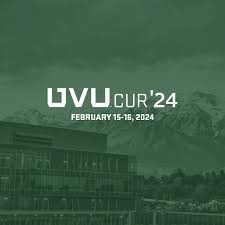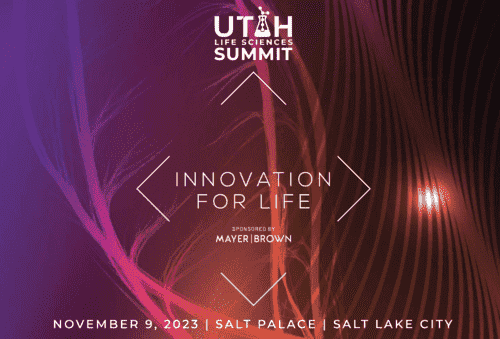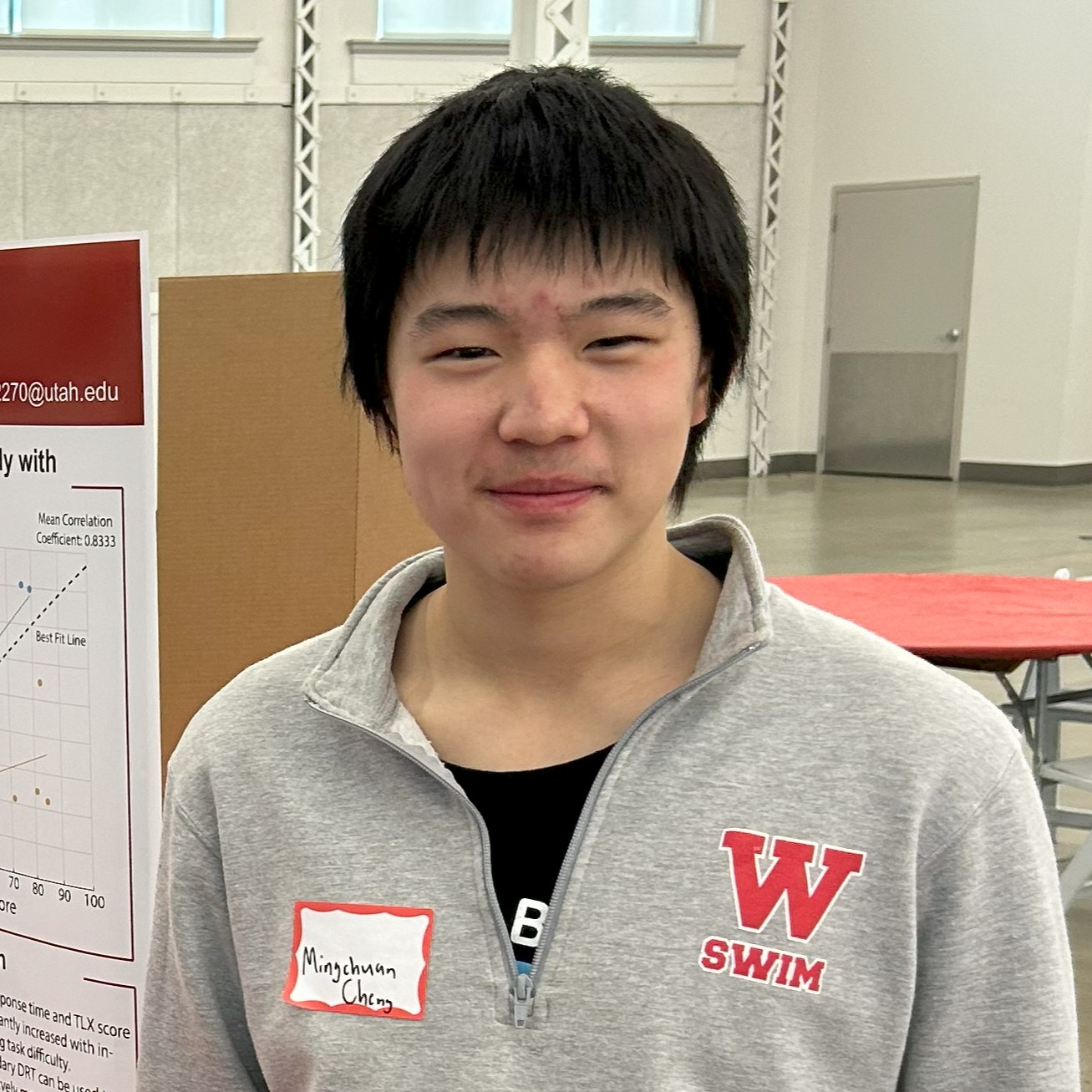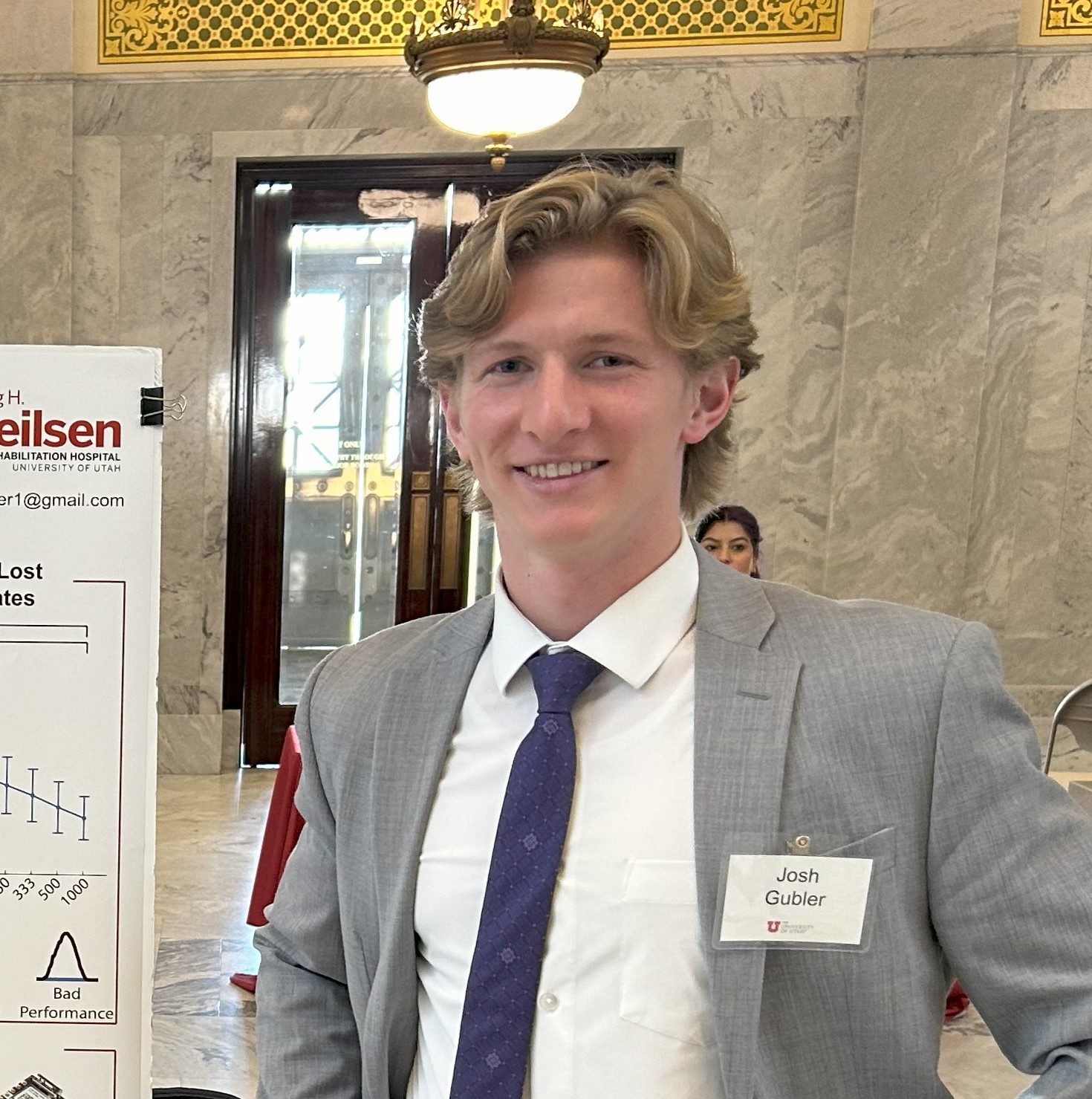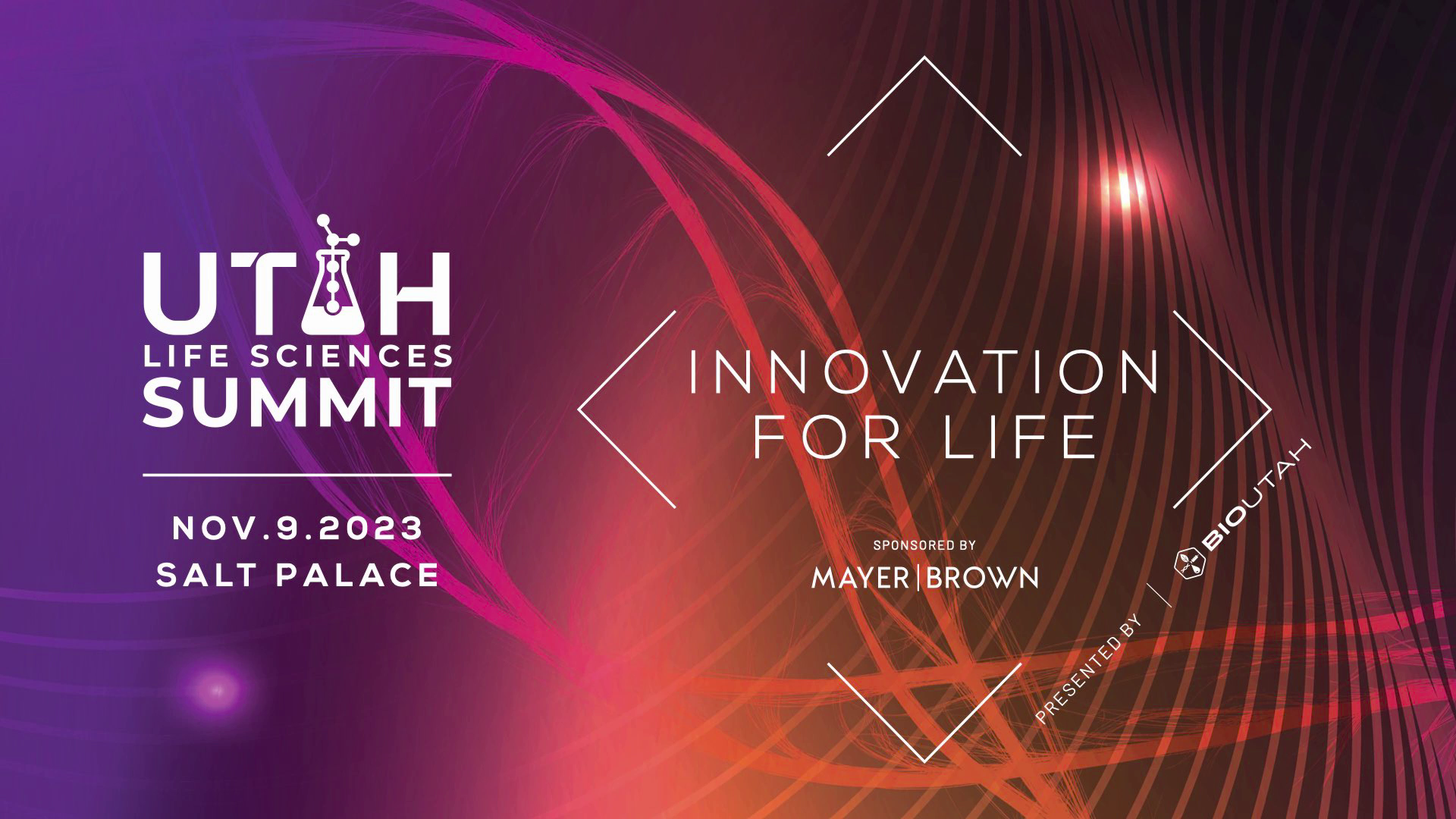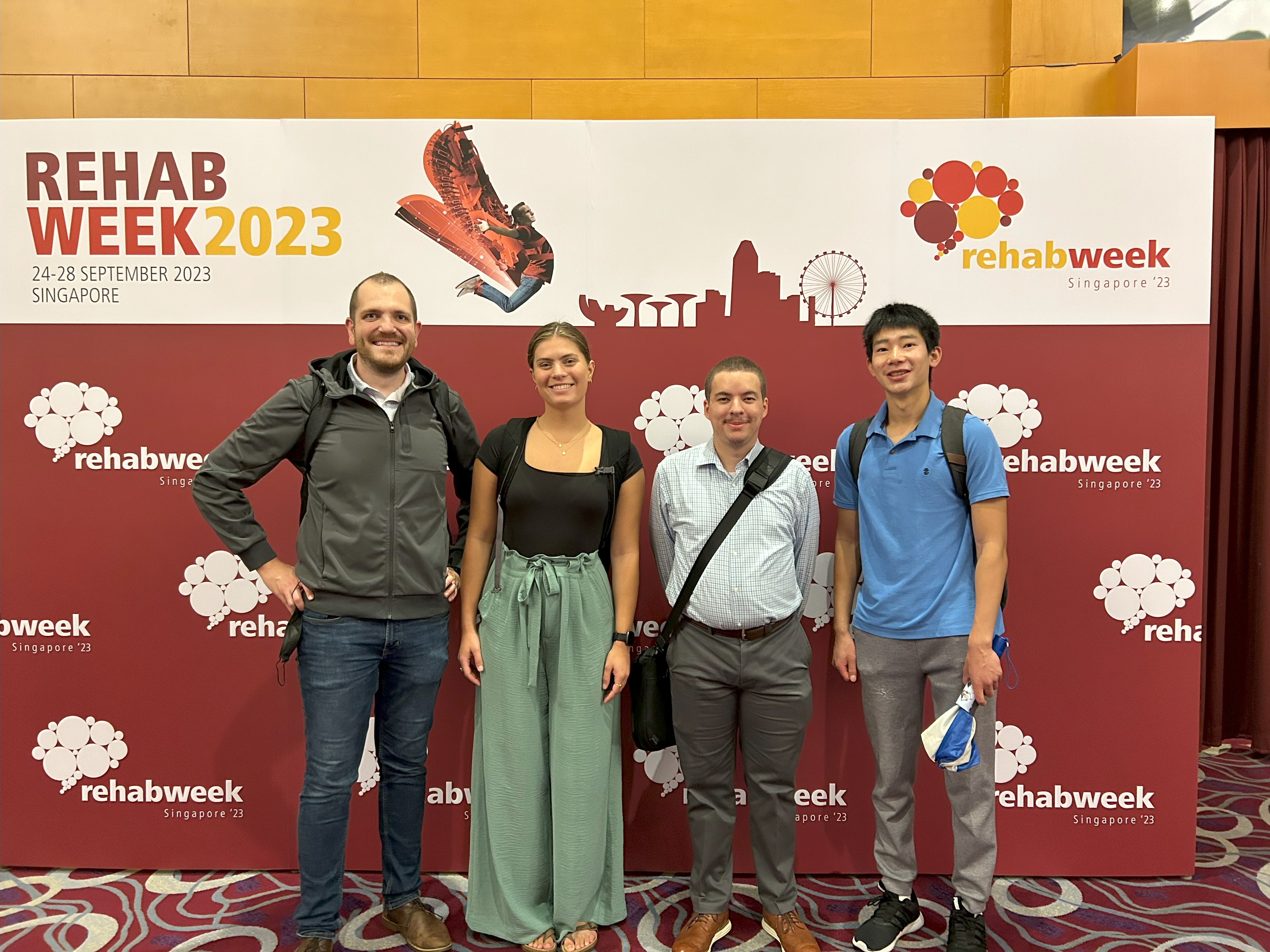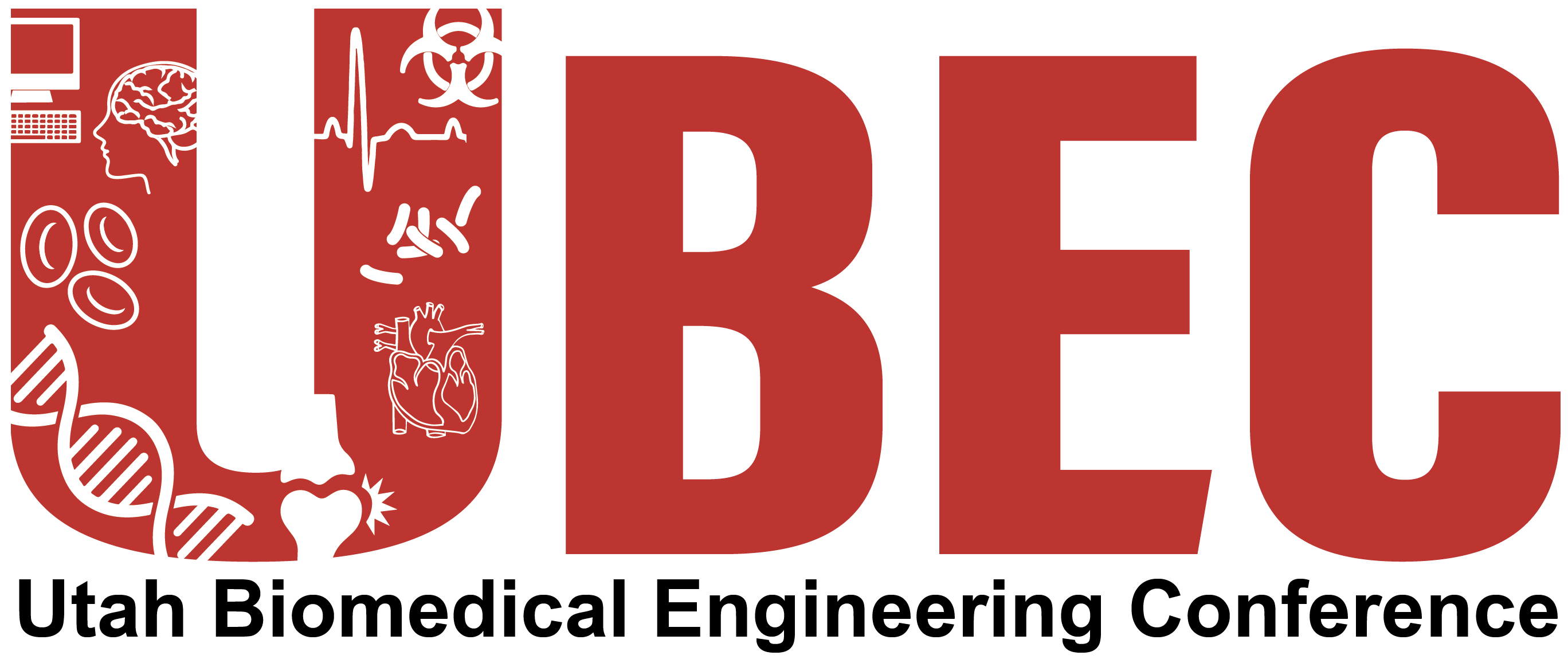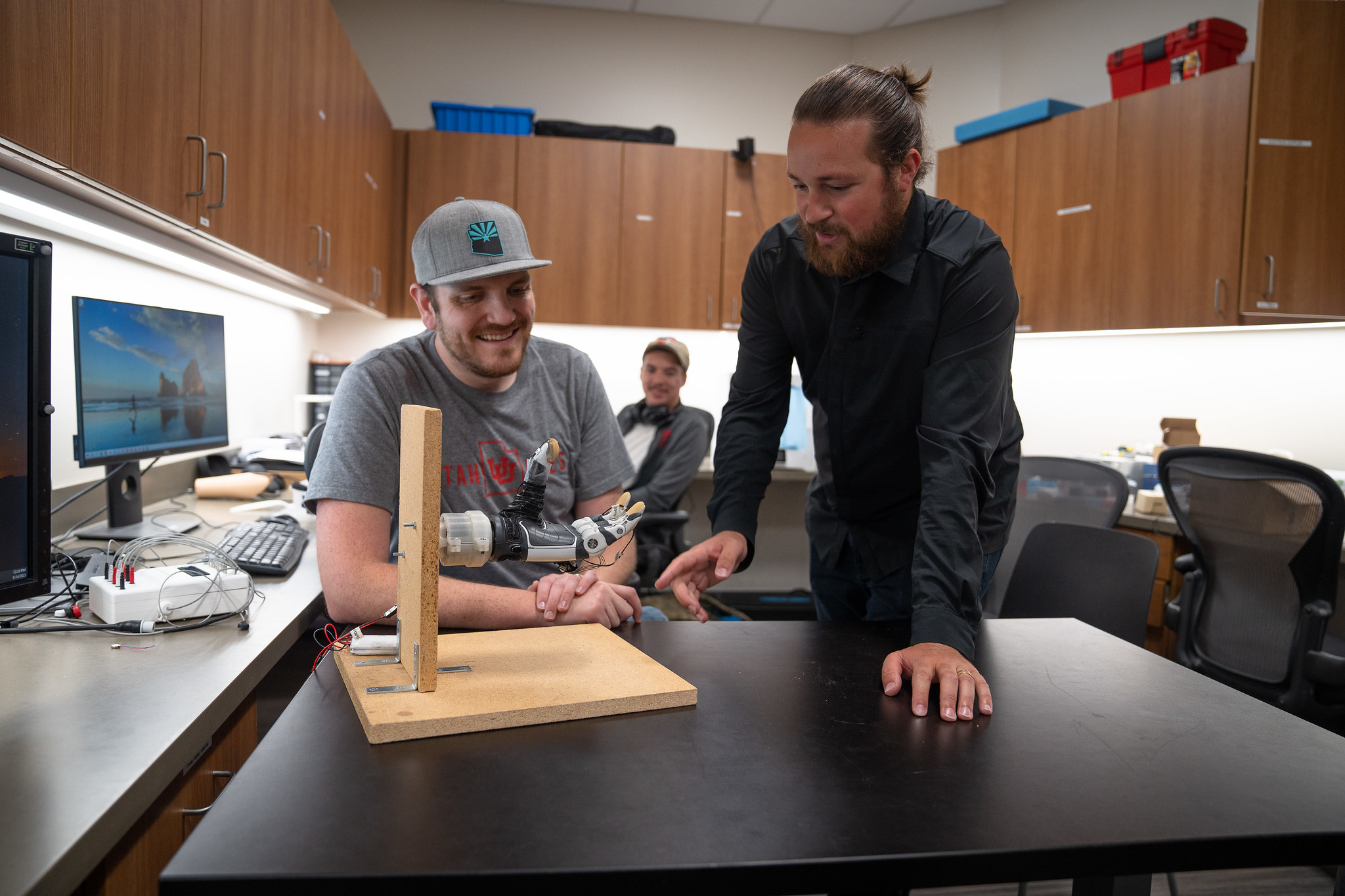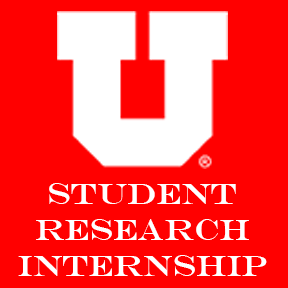Two undergraduate research fellows from the Utah NeuroRobotics Lab, Cassandra Burdick and Joshua Gubler, presented their research at the Utah Conference of Undergraduate Research (UCUR) held at Utah Valley University. UCUR is an annual conference celebrating and highlighting undergraduate research. This event demonstrates and celebrates undergraduate research and creative work from 10 colleges and universities in Utah. Students of all disciplines from around the state share the results of their investigations with other students, faculty, field specialists, and the public. Cassandra’s and Josh’s presentations were:
- Cassandra Burdick – Analyzing Fine EMG Control of Hemiparetic Stroke Patients Using a Virtual Reality Variant of the Box and Blocks Task
- Josh Gubler – Strategies for Downsampling Electromyographic Signals for Low-Power Wearables




